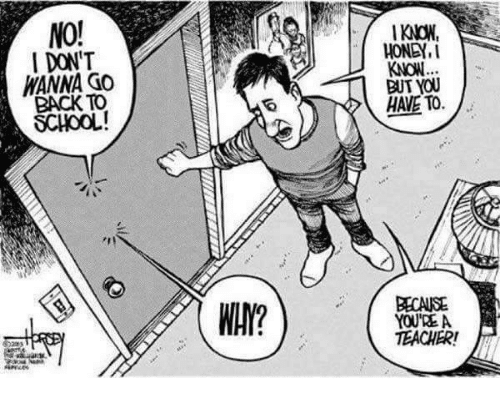
May
What is TEFL? And what you need to know about it.
TEFL stands for Teaching English as a Foreign Language. Take out the ‘T’ and you’ve got EFL, which refers to the subject alone.
These terms are closely related to both TESL and ESL, where the ‘S’ stand for ‘second’. While there are slight differences, the terms are synonymous, additionally we now have the umbrella terms TESOL (Teaching English to Speakers of other Languages) and ELT (English Language Teaching).
TEFL, TESOL and ELT, all relate to teaching English to students who already speak another language. This is a relatively new in the field of language education, and TEFL as we know it today was far less commercially feasible until the early 20th century.
Since then, the TEFL field has grown rapidly. According to a report from the online statistics site Statista, “Over the last ten years the market has doubled in size, reaching 46.5 billion U.S. dollars in 2018”. As such, worldwide demand for EFL teachers is far outstripping supply, which is welcome news for the thousands of people entering the profession every month.
For those considering TEFL, there are few things they should know…
1. TEFL isn’t like traditional teaching

TEFL is very different from the images of traditional teaching we see in mainstream media. In movies, we often see students sat in neat rows, quietly taking notes while the teacher lectures from the front of the class. Even the way native English speakers learn English in school isn’t like EFL. In TEFL, there is much more focus on student participation. Participation requires communication and this communication is a natural form of language practice. The more practice a student gets, the more their English improves—or at least that’s what’s meant to happen.
To be fair, modern teaching methods have adapted more effective ways of teaching that don’t fit the classic stereotypes, but EFL still requires different approaches from teaching core subjects such as math or science.
2. TEFL teachers don’t need to speak their students’ language

Just one example of direct translation’s limitations. Photo credit: Chris Radley
The outstretched demand for EFL teachers would be even higher if all the teachers had to speak their students’ mother tongue. In fact, at nearly every language level, use of the students’ first language is seen as a crutch. Modern teaching methods focus on ‘English only’ approach in the classroom–which is far easier said than done. But with effective training, the power of a good demonstration, or the ability to establish recognizable patterns without complex explanations trump outdated approaches that required the teacher to know their student’s first language.
3. TEFL teachers need much more than English fluency

The biggest misconception in TEFL is the idea that English speakers can teach English simply because they’re fluent. This couldn’t be farther from the truth. If you’re a strong buy klonopin fedex swimmer, does that make you a strong swimming coach? A strong swimmer may go on to eventually become a good swimming coach, but not without guidance and training from experienced coaches. If this were an automatic progression, gifted athletes would just become head coaches without earning qualifications and being assistant coaches first.
4. You need professional knowledge

Language is a lot like electricity, motors and satellite technology—we use them throughout our everyday lives but most of us have very little knowledge of how they work. We can use English fluently without any effort, but can we answer basic questions when asked about the language?
How many tense forms are there in English? Can you easily spot the subject or the objects in a sentence? Do you know what a phoneme is? If not, TEFL is going to be a challenge and we haven’t even talked about effective teaching techniques yet. A fluent speaker intuitively knows when something sounds wrong, but the ability to break down the error and efficiently help the learner avoid it in the future is what makes us good EFL teachers.
5. Recognized TEFL training and certification is essential

While there isn’t one explicit list of qualifications for TEFL professionals, there is a commonly agreed upon, entry-level standard called a TEFL certificate. TEFL certification courses come in a variety of formats, offered by hundreds of providers in thousands of locations worldwide. As such, choosing the right course can seem overwhelming.
While there are plenty of employers who’ll hire a new EFL teacher without any training or experience, potentially creating a recipe for disaster, reputable employers that pay decent salaries and who are interested in ensuring a decent education look for TEFL certification with the following components:
1. 120 hours of study and training
2. Onsite teaching practice with real language learners
3. Laguage awareness assessments
4. Peer teaching observations
5. Observations of experienced teachers
6. Completion of various assignments and assessments
Added to that, a TEFL course worth the time, money and efforts spent will have independent TEFL accreditation and validation. It should also be recognized by employers worldwide and offer meaningful TEFL job support.

Can you imagine standing in front of a class trying to teach the present continuous tense form and all of its auxiliary verb conjugations as well as its usages, while at the same time maintaining good classroom management, checking for understanding and ensuring that naughty student in the corner isn’t causing chaos? If the mere thought of that common TEFL scenario made your palms sweat, you might want to consider taking one of TEFL Campus’ TEFL certification courses.

If you’re interested in TEFL, contact us today.
TEFL Campus is Phuket’s most popular, highest-rated TEFL certification course and the only one with university-level validation.







